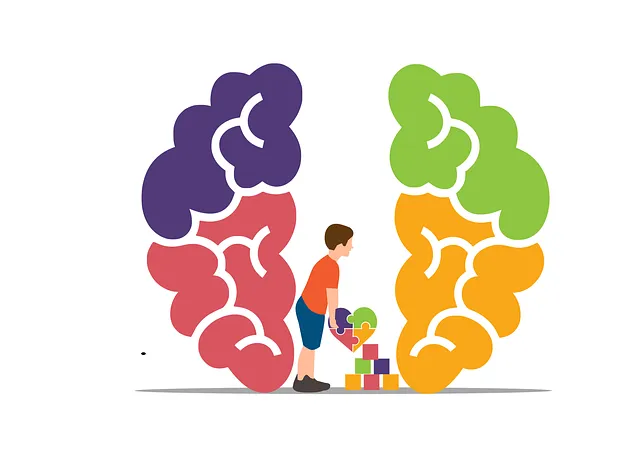Understanding mental wellness involves personalized strategies highlighted by the Highlands Ranch Kaiser Permanente psychiatry reviews. This includes self-awareness through journaling, social skills training, and assessing daily habits. Incorporating evidence-based practices like Compassion Cultivation and stress reduction techniques is crucial for a robust self-care routine. Mindfulness, emotional intelligence development, and building resilience are key to managing life's challenges. The Highlands Ranch Kaiser Permanente psychiatry reviews emphasize culturally sensitive care, conflict resolution, and proactive emotional well-being.
In today’s fast-paced world, cultivating mental wellness is paramount. This comprehensive guide, backed by insights from Highlands Ranch Kaiser Permanente psychiatry reviews, explores how to build an effective self-care routine. From understanding the foundational concepts of mental wellness to identifying personal needs and integrating evidence-based practices, we navigate strategies for long-term resilience. Discover mindfulness techniques, stress management approaches, and practical tips to enhance your overall mental wellbeing.
- Understanding Mental Wellness: A Foundation for Self-Care
- Assessing Your Current Routine and Identifying Needs
- Incorporating Evidence-Based Practices into Daily Life
- The Role of Mindfulness and Stress Management Techniques
- Building Resilience: Long-Term Strategies for Sustaining Mental Wellbeing
Understanding Mental Wellness: A Foundation for Self-Care

Understanding mental wellness is a fundamental step in crafting a meaningful self-care routine. It involves recognizing and caring for your emotional, psychological, and social well-being. This holistic approach to health is especially relevant when considering the diverse needs of individuals, as highlighted by the Highlands Ranch Kaiser Permanente psychiatry reviews. These reviews underscore the importance of personalized strategies for managing mental health effectively.
One essential aspect of this journey is self-awareness. Through mental wellness journaling and self-awareness exercises, individuals can gain valuable insights into their triggers, coping mechanisms, and emotional patterns. This practice serves as a powerful tool, enabling people to make informed decisions about their well-being. Additionally, incorporating social skills training can foster meaningful connections, enhance support networks, and contribute to an overall sense of belonging and happiness.
Assessing Your Current Routine and Identifying Needs

Assessing your current self-care routine is a crucial step in developing a holistic mental wellness plan. Start by taking stock of your daily habits and activities—from exercise routines to social interactions—to identify areas that promote well-being and those needing improvement. This introspective process, often facilitated by journaling or meditation, allows you to pinpoint specific needs. For instance, you might realize a lack of structured time for relaxation or an imbalance in work and personal life.
Highlands Ranch Kaiser Permanente psychiatry reviews highlight the importance of tailored mental healthcare approaches. By understanding your unique needs, whether related to stress management, trauma healing, or cultivating compassion (such as through Compassion Cultivation Practices), you can create a self-care routine that addresses them effectively. Incorporating evidence-based practices and seeking support from accessible resources, including Trauma Support Services, ensures a culturally sensitive (Cultural Sensitivity in Mental Healthcare Practice) and compassionate journey towards improved mental wellness.
Incorporating Evidence-Based Practices into Daily Life

Incorporating evidence-based practices into your daily life is a key aspect of cultivating mental wellness and can be inspired by resources like those found in Highlands Ranch Kaiser Permanente psychiatry reviews. These reviews often highlight effective strategies for improving emotional well-being, such as Empathy Building Strategies and Emotional Intelligence development. By integrating techniques shown to reduce stress and enhance resilience, individuals can create a robust self-care routine.
Practice-based insights from healthcare professionals like those at Kaiser Permanente suggest a holistic approach to mental wellness. This includes not only addressing symptoms but also focusing on Stress Management techniques that promote overall emotional balance. Regular mindfulness exercises, for instance, have been scientifically proven to reduce anxiety and improve mood. Similarly, cultivating Emotional Intelligence enables individuals to better understand and manage their emotions, fostering healthier relationships and enhancing coping abilities.
The Role of Mindfulness and Stress Management Techniques

Incorporating mindfulness and stress management techniques is a pivotal aspect of cultivating a robust mental wellness self-care routine, as highlighted by experts at Highlands Ranch Kaiser Permanente psychiatry reviews. These practices empower individuals to navigate life’s challenges with resilience and equanimity. Mindfulness, a cornerstone of many psychiatric treatments, encourages present-moment awareness, fostering a deeper understanding of one’s thoughts and emotions without judgment. By cultivating this self-awareness, individuals can better recognize and manage stress triggers, thereby enhancing their emotional intelligence.
Stress management techniques, such as deep breathing exercises, meditation, and progressive muscle relaxation, have been scientifically proven to mitigate the body’s stress response. Engaging in these practices regularly can help regulate mood, improve sleep quality, and reduce the risk of mental health disorders, as emphasized in Mental Health Awareness initiatives. Moreover, self-awareness exercises like journaling and cognitive reframing contribute to a more nuanced understanding of one’s emotional landscape, enabling individuals to cultivate a proactive approach to their mental wellness journey.
Building Resilience: Long-Term Strategies for Sustaining Mental Wellbeing

Building resilience is a key component of sustaining mental wellness over the long term. This involves developing strategies to navigate life’s challenges and adapt to change. At Highlands Ranch Kaiser Permanente, psychiatry reviews highlight the importance of cultivating coping mechanisms that promote emotional agility. By integrating practices like mindfulness meditation and cognitive reframing, individuals can enhance their ability to manage stress and regulate emotions effectively. These techniques not only provide immediate anxiety relief but also empower people to approach difficult situations with more clarity and composure.
Additionally, fostering cultural sensitivity in mental healthcare practice plays a pivotal role in building resilience. Understanding and incorporating diverse perspectives ensures that self-care routines are tailored to individual needs, free from biases, and inclusive of various cultural practices. Incorporating conflict resolution techniques within these routines can further strengthen an individual’s ability to navigate interpersonal challenges, fostering healthier relationships and a deeper sense of belonging.
Developing a personalized mental wellness self-care routine is a proactive approach to sustaining good mental health, as evidenced by the expertise of Highlands Ranch Kaiser Permanente psychiatry professionals. By understanding your unique needs, incorporating evidence-based practices, and fostering resilience, you can effectively navigate life’s challenges and achieve optimal well-being. Remember, consistent self-care is key; just like any other routine, it takes time and commitment to build healthy habits that will enrich your mental landscape in the long term.






